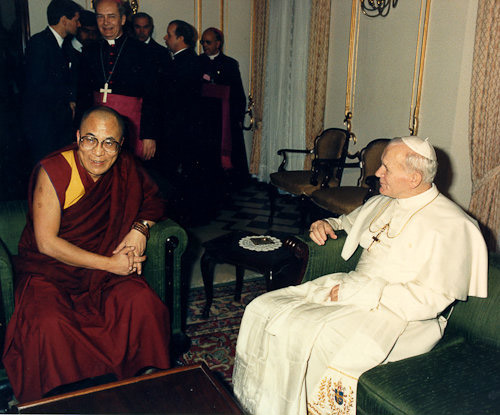S
Sniffles
Guest
Christianity, Judaism, and Islam all have mystical traditions; and they're considered integral parts of those faiths. Within Christianity, several mystics like St. John of the Cross, St. Theresa, and St. Hildegard of Bingen and numerous others are formally canonized as saints. To claim otherwise betrays complete ignorance of these traditions. Concerning history, well I'm very well read on history and am in constant contact with historians around the world. This is also includes scholars of comparative religions as well.I would also like to point out, for the record, that Buddhism does not have a history of executing its mystics. Neither of the two later major monotheisms can say that. Buddhism also doesnt have a history of killing people for not "believing the right things", once again unlike some (all?) the major monotheisms.
There is a reason in history books that Buddhism is often held up as a more "peaceful" world religion, either in a general sense or in the sense thats its started less wars relating to religious beliefs or conversion. and there are reasons that history books talk about wars and conflict between religious groups in the West [and probably beyond] and gives all sorts of examples of religiously-motivated wars and list "differences in religion" as a historical cause of many conflicts. If someone wants to ignore every point that I've personally made, then go argue with the history books and the people that write them. And your gonna need a lot of luck "overlooking" things like the crusades, all sorts of protestant/catholic fighting, spreading of Islam by force, and whatever other examples are out there.
I'll repeat my basic point that I hold no grudge against Buddhism, unlike the grudge you clearly hold against the Abrahamic faiths. In the end we are all united in the One, the Absolute, the Beginning and the End as the Islamic mystic Rumi once famously proclaimed. The Dalai Lama for one has openly admitted a profound admiration for the Christian tradition. Perhaps you should best follow his example.




